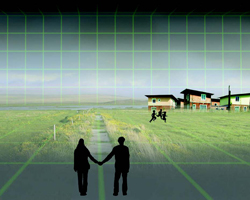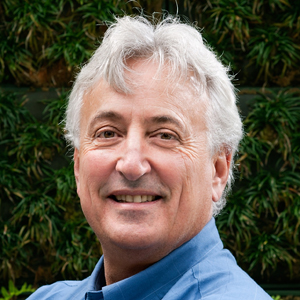 In today’s ‘anthropocene’ world, human impacts on ecological life support systems are increasingly complex and far-reaching. At the same time, maintaining living standards in developed nations and reducing poverty in developing nations, places increasing demands on the planet’s life support functions. In this ‘full’ world, the emphasis in research, education, and policy needs to shift from addressing problems in isolation to studying whole, complex, interconnected systems and the dynamic interactions between the parts.
In today’s ‘anthropocene’ world, human impacts on ecological life support systems are increasingly complex and far-reaching. At the same time, maintaining living standards in developed nations and reducing poverty in developing nations, places increasing demands on the planet’s life support functions. In this ‘full’ world, the emphasis in research, education, and policy needs to shift from addressing problems in isolation to studying whole, complex, interconnected systems and the dynamic interactions between the parts.
Incorporating both biophysical and social dynamics makes these problems “wickedly complex” and impossible to address from within the confines of any single discipline. We are currently exceeding safe planetary biophysical boundaries. GDP is growing, but rising inequality, loss of natural and social capital and decreasing ecosystem services net out to stagnating improvements in overall quality of life in many countries and existential risks to global sustainability. The problems are well-known. The solutions require new approaches.
To achieve the UN Sustainable Development Goals (SDGs), we need to shift from a narrow focus on GDP growth to a broader understanding and measurement of wellbeing – the integrated wellbeing of humans and the rest of nature – and develop creative ways to envision and achieve the future we all want.
To address these issues, my work integrates the study of humans and the rest of nature. It deals with research, policy and management issues at multiple time and space scales, from small watersheds to the global system.
It focuses on three major themes:
(1) Integrated, Dynamic Analysis and Modelling of Social-Ecological Systems: How do we better understand, model, value and manage our complex, interdependent systems of humans and the rest of nature over multiple space and time scales?
(2) Measuring Well-Being: How do we understand and measure human and environmental well-being in a more integrated way, including built, human, social and natural capital assets and their interactions and services?
(3) Creating the Future We Want: How do we engage the full range of stakeholders in envisioning and designing more sustainable and desirable futures?
Areas of Professional Expertise:
Transdisciplinary integration, ecological economics, ecosystem services, landscape ecology, integrated ecological and socioeconomic modeling, energy and material flow analysis, environmental policy, social traps, incentive structures and institutions.
Google Scholar, Research Gate, Scopus
For additional information see my full CV
